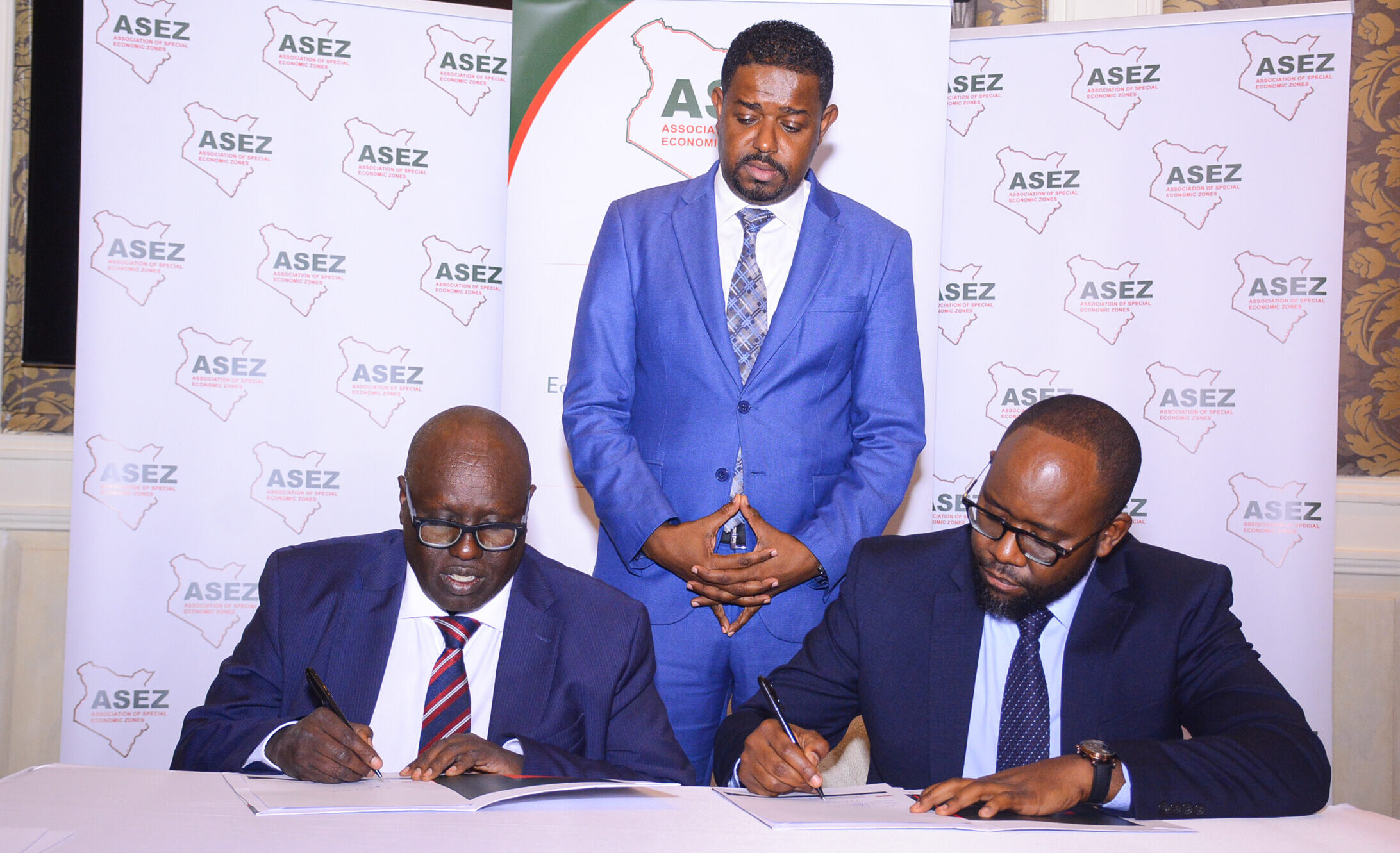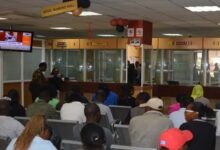Kenya’s Special Economic Zones get major push with ASEZ launch, targeting investors

Kenya’s Special Economic Zones (SEZs) received a major boost on Tuesday with the official launch of the Association of Special Economic Zones (ASEZ) with a mandate to promote the sector and attract local and foreign investment.
The opening of the ASEZs is a major milestone for Kenya’s industrial sector as it is expected to spur economic growth, create jobs and positions Kenya a preferred destination for global investors.
The new association aims to bring together SEZ developers, operators, investors and service providers to advocate for better policies, stricter regulation and improved infrastructure.
Speaking at the launch, PS Abubakar Hassan Abubakar of the State Department of Investment Promotion said the establishment of SEZs is a quick way for the government to work with the industry.
For the association members, it is a safe opportunity to develop ideas and also a chance to compare notes with each other.“SEZs are a central pillar in the government’s economic agenda, and we see them as champions of Kenya’s journey towards becoming a globally competitive investment hub,” Abubakar said.
“President Ruto’s vision for this nation is deeply rooted in industrialization, job creation, and economic growth. We are committed to ensuring SEZs receive the full backing of the government.”
Abubakar noted that the government has already operationalised the Dongo Kundu SEZ adding that investors have already started setting up.
This, he added, is the same case for the Naivasha SEZ where one investor is currently operational while 19 others have been screened to set up.
He said that the SEZ Authority has so far facilitated the gazettement of 38 SEZs; where 8 are public and 30 are private. However, out of the 30, 10 are operational while 20 are not operational but are gazetted.
“We are going to soon do an audit of the gazetted zones that are not being developed so that we can re-gazette them,” Abubakar said.
The launch event emphasised the association’s commitment to advocacy, networking, and capacity building.
ASEZ aims to connect SEZ developers and investors with global partners and offer tailored solutions to address the unique challenges faced by SEZ stakeholders.
Its members will enjoy favourable investment support and close collaboration with relevant government entities.
They will also access global best practices, networking opportunities, and trade facilitation.
Members such as zone developers, operators, enterprises or service providers, however, must attain the necessary licences and approvals within the SEZ ecosystem.
David Langat, chairman of the ASEZ, said that manufacturing in the SEZs, as a key driver of industrial growth, has a ripple effect on the entire economy, creating jobs for young people and making Kenya a regional powerhouse.
“Through the ASEZs, our goal is to strengthen the sector and expand its potential for long-term, sustainable growth. The ASEZs are committed to ensuring that the SEZs operate in a globally competitive, business-friendly environment, and we look forward to working with the government to further promote growth in this important industry.”
Langat further said that the organizations have been operating in isolation, adding that together they can develop good, clear strategies to steer the industry in the right direction.
Although they have encountered many challenges, including the lack of adequate infrastructure, Langate said the government has done a lot to enable them to operate smoothly.
“The infrastructure in most areas is well developed, which will lead to faster development of the SEZs.” The government has strict licensing measures for the SEZs, which have made the SEZs meet the threshold required to operate. For example, it must be proven that the financial resources are sufficient to operate the SEZs. ” he added.
“SEZs currently contribute 3.5% to Kenya’s GDP and our goal is to increase this to around 10-15% by 2030.”
SEZ operators, developers and even companies face challenges in representation, especially when speaking with one voice, said Solomon Mahinda, deputy chairman of the ASEAN.
This applies to very important policy and regulatory issues as well as the day-to-day issues that affect the operation of SEZs.
“SEZs are vital to the industrialization of our country, providing fertile ground for investment and job creation. With the ASEAN, we can now use a unified voice to advocate for policies that unlock the full potential of these zones. ”
In November, PS Abubakar highlighted that Kenya will host the African Economic Zones Organisation Conference in Nairobi.
The event will be a landmark one, bringing together policymakers, investors and stakeholders from within and outside Africa to discuss the future of SEZs in Africa.
The conference will also provide an opportunity to showcase Kenya’s progress on SEZs, learn from best international practices and explore new partnerships.
It will also solidify Kenya’s position as a major player in the regional and global landscape.
Follow us on Telegram, Twitter, and Facebook, or subscribe to our weekly newsletter to ensure you don’t miss out on any future updates. Send tips to editorial@techtrendsmedia.co.ke


